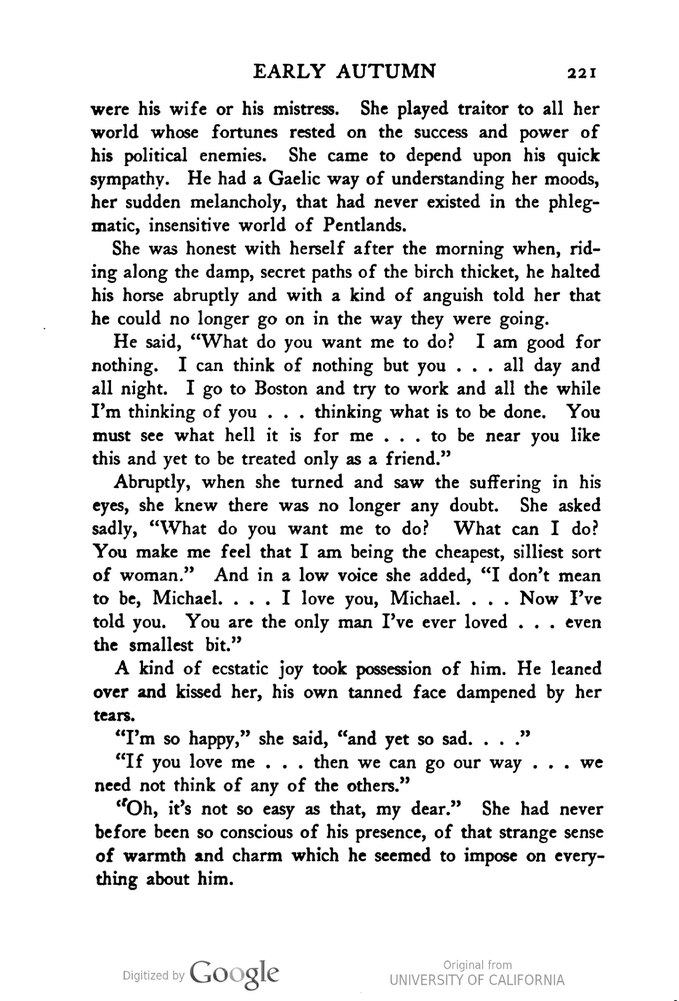were his wife or his mistress. She played traitor to all her world whose fortunes rested on the success and power of his political enemies. She came to depend upon his quick sympathy. He had a Gaelic way of understanding her moods, her sudden melancholy, that had never existed in the phlegmatic, insensitive world of Pentlands.
She was honest with herself after the morning when, riding along the damp, secret paths of the birch thicket, he halted his horse abruptly and with a kind of anguish told her that he could no longer go on in the way they were going.
He said, "What do you want me to do? I am good for nothing. I can think of nothing but you . . . all day and all night. I go to Boston and try to work and all the while I'm thinking of you . . . thinking what is to be done. You must see what hell it is for me . . . to be near you like this and yet to be treated only as a friend."
Abruptly, when she turned and saw the suffering in his eyes, she knew there was no longer any doubt. She asked sadly, "What do you want me to do? What can I do? You make me feel that I am being the cheapest, silliest sort of woman." And in a low voice she added, "I don't mean to be, Michael. . . . I love you, Michael. . . . Now I've told you. You are the only man I've ever loved . . . even the smallest bit."
A kind of ecstatic joy took possession of him. He leaned over and kissed her, his own tanned face dampened by her tears.
"I'm so happy," she said, "and yet so sad. . . ."
"If you love me . . . then we can go our way . . . we need not think of any of the others."
"Oh, it's not so easy as that, my dear." She had never before been so conscious of his presence, of that strange sense of warmth and charm which he seemed to impose on everything about him.
